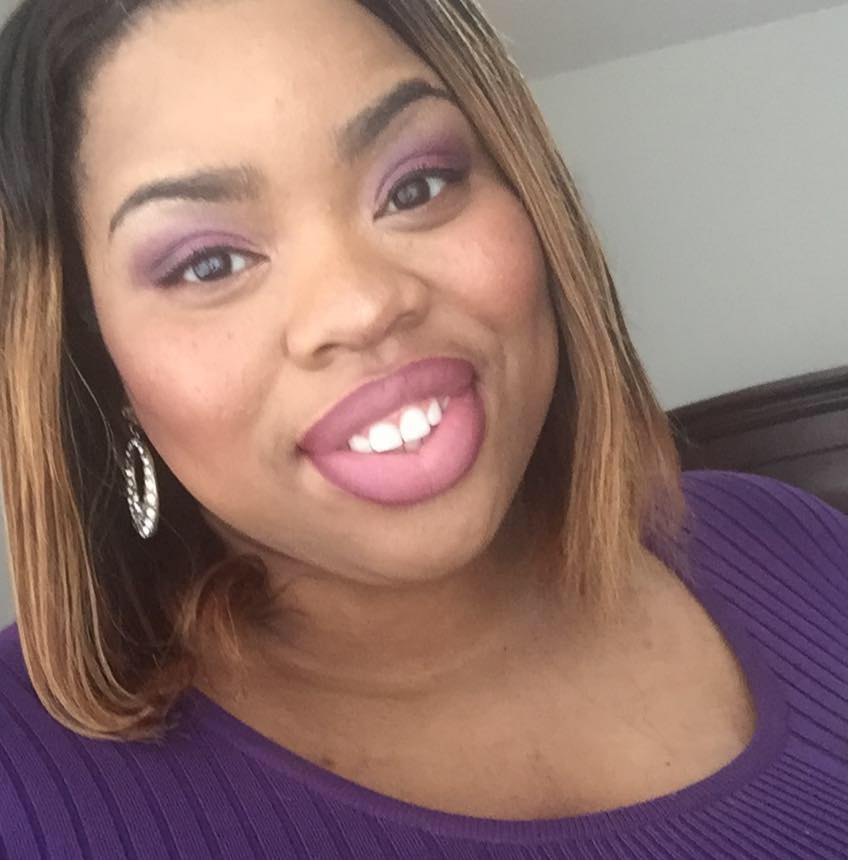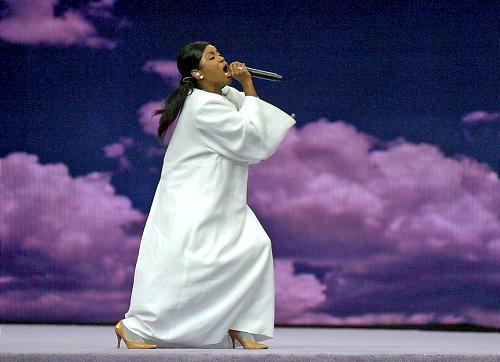#BlackSkinWhiteSin: For Those Still Haunted by The Sheets (Why the Counter-Narrative Matters)
By Candice Benbow
I remember the first time I watched Juanita Bynum’s “No More Sheets” sermon. Family members had just come back from the Woman, Thou Art Loosed conference and brought my mother a copy. She told me I couldn’t watch it so I waited until I was home alone and watched the sermon that had my mother in tears one night. Still young and virginal, I didn’t understand Bynum’s experience. I knew that she was reaping the consequences of intentionally falling outside the Will of God. I would never be like her. I would never have to literally put my Self back together because I was irresponsible with my body. I was a good, Southern church girl and, if I didn’t know much, I knew better than that.
Adulthood came and knocked me right off that high horse. Falling in love and having that love abused caused me to search for healing ways of understanding God’s love for me. I am the child of two unmarried parents, I have never been married and I am not a virgin. In the eyes of the church, I was the product of sin and living out the consequences of that production. I needed a theological understanding of myself that saw me as Good Creation. It has taken a lot of time and tears but, thankfully, I’m not the same naïve, impressionable girl that I was when I snuck to watch “No More Sheets” in my mother’s bedroom.
As a writer and womanist, I am constantly working through the violence theology has done to Black women’s bodies. I am working through the violence it has done to my own and looking for ways to constantly reaffirm that I am God’s beloved. When Dr. Bynum presented “No More Sheets Part 2” on Facebook a few weeks ago, it was unfortunate proof that this work must continue with more vigor and intentionality. Simultaneously, as a churched Black woman, I’ve been vocal of my love for Dr. Juanita Bynum as a preacher and how she has been a victim of the ways patriarchal Black Church leadership fetishizes Black women’s bodies and abuses our labor. Yet, while I love her, I don’t rock with her theologically. Hers is a vision of God and the body that is death dealing. That is, she refuses to see Black women’s bodies as Good Creation. And thus, so many of us can’t afford the price of Bynum’s ticket because we have already been paying with our lives. She has been paying with hers, too, whether she chooses to admit it or not.
Unfortunately, despite how transformed we are or enlightened we become, it’s hard to completely walk away from the narratives that have formed us. While watching “No More Sheets Part 2,” I found myself deeply conflicted. On one hand, I knew that Bynum was projecting her own sexual repression onto us. This wasn’t about us (often, it never is). This was about Bynum’s anger at her inability to make room for the fullness of herself within her own theological construction. She is mad, that is clear. Yet, she is only mad at us inasmuch as we represent an affirmation of God and ourselves that she cannot comprehend and refuses to accept. I see that and I get it. On the other hand, when I surveyed the valley of dry bones in my personal life, I thought “…well maybe she has a point.” I watched “No More Sheets Part 2” and wrestled with the possibility that my progressive theologies are at the root of my singleness. I questioned if it was my fault that Black men have not taken the love I gave them seriously. And I know I’m not alone. So many of us are still carrying decades of repression in our bodies.
Those old scripts replay in our heads with every heartbreak and disappointment. And it becomes even more complicated for us as we establish ourselves within the trajectories of progressive theologies. Just because we are progressive doesn’t mean that we have moved completely beyond the narratives we’ve heard our entire lives. I know I am not the only single, progressive churched sister who desperately looks around for our wins and struggles with the fact that maybe they’re hard to find because they’re not supposed to exist. Here’s the thing: I know these are lies. Yet, the very limited spaces to affirm them as such continues to be a problem. And many pastors agree with me. However, those same pastors will qualify that agreement with “but I could never preach/teach that in my church.” These pastors fail to allow for a much more nuanced theological understanding of sexuality that can liberate all Black people, including heterosexual Black women.
Simply put: we need the space to be free. And when these well-meaning pastors are silent, their churches remain oppressive. The counter-narrative matters because we need it. Dr. Juanita Bynum, and those who support her, cannot be the only highly vocal and visible ones. They must not be the primary voices that direct the conversations regarding Black women’s sexuality and spirituality. This forum has brought together so many who sit at the intersection of the academy and the church. Yet, the academy provides a certain kind of freedom to engage in this dialogue that the church refuses. We need more practical theological spaces that will lift up the counter-narrative, that will provide support to every day Black women asking questions and constructing their own theologies. We need the counter-narrative because, if the women who are doing the heavy theological lifting are hurting, what about the other sisters? If we – the progressive ones who “know” better – are desperately searching for spaces where we can regularly hear this theology and be affirmed, what about the women, without these tools, who are looking to us? Who pastors all of us? If we continue to hear “I agree but I can’t preach/teach this,” how will any of us ever get free?
Now more than ever, I am no longer committed to accepting this as an answer. Rather, I place my efforts and intentions around responding to the question, “How can I preach/teach this to my congregation?” This may require that pastors reconcile their own views about Black women’s sexuality and admit that our theologies concerning it have been used in ways that ensure sisters’ devotion to all things Black Church. It might force Black pastors to be honest about the reality that these oppressive theologies allow our congregations to function. The productivity of Black churches happens on the backs and in between the legs of Black women. To relinquish that kind of power is unsettling. And yet, the counter-narrative is vital.
Although “No More Sheets” was definitely inappropriate for this young girl still developing in her own skin, its message is inappropriate for all of us. While I believe Bynum believes in and is fully invested in this kind of teaching, even she struggles to remain faithful to it. A quick Google search will produce images showing her embodying the very same aesthetic she spent over an hour chastising us for embracing. That’s what oppressive theology does — it teaches us to contradict ourselves rather than experience true liberation. I’m sure, at some point, there will be a “No More Sheets Part 2” book and conference. Bynum will be able to solidify the legacy she seems to fear is in danger of disappearing and make the money she needs. After all, blaming Black women’s singleness on their lack of holiness and devotion to God is big business. Yet, as she advances in our exploitation, I hope more spaces become available that will allow another message to prevail. And, I hope the hearers of that message, including Bynum herself, get free.
 Candice Benbow is a Religion and Society doctoral student at Princeton Theological Seminary. She is also a Lecturer in Women’s and Gender Studies at Rutgers University. In May 2016, Candice created the Lemonade Syllabus, a collection of works centering Black womanhood, in response to Beyoncé’s visual album Lemonade. With over 70 contributors, it catalogs over 250 works. Candice’s doctoral work lies at the intersections of Black feminist theory, womanist theology and doctrines of creation. Additionally, she is interested in the use of digital space and social media as opportunities for Black women’s spiritual transformation.
Candice Benbow is a Religion and Society doctoral student at Princeton Theological Seminary. She is also a Lecturer in Women’s and Gender Studies at Rutgers University. In May 2016, Candice created the Lemonade Syllabus, a collection of works centering Black womanhood, in response to Beyoncé’s visual album Lemonade. With over 70 contributors, it catalogs over 250 works. Candice’s doctoral work lies at the intersections of Black feminist theory, womanist theology and doctrines of creation. Additionally, she is interested in the use of digital space and social media as opportunities for Black women’s spiritual transformation.





Pingback: #BlackSkinWhiteSin: From Pernicious Editing to Audacious Rescripting (Benediction) - The Feminist Wire